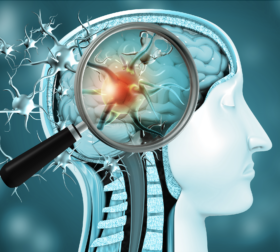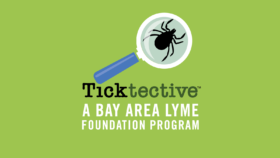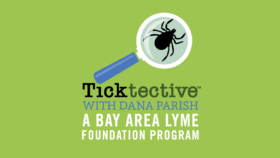By Bay Area Lyme Foundation Ticktective Podcast Transcript
In this interview, psychiatrist Dr. Robert Bransfield explains the links between neuropsychiatric disorders and infections. He recounts his successes treating patients who repeatedly fail to respond to conventional interventions. Dr. Bransfield describes how clinical diagnoses of infection, along with correct administration and interpretation of testing, plus treating patients with antibiotics can, in many cases, lead to an abatement of a variety of psychiatric disorders, from psychosis to depression and anxiety. He also explores the connection between tick-borne diseases in maternal-fetal transfer of infections and the rise in autism in children.
Note: This interview has been edited for clarity. Bibliography and references are posted below.
“What are people in the future going to say about the Lyme crisis? I’m sure this will be judged by history as a great failure of our healthcare system, that we didn’t move quickly enough with this, and that people were holding back progress.”
—Dr. Robert Bransfield
Dana Parish: Hi, I am Dana Parish, and I am hosting the Ticktective podcast on behalf of Bay Area Lyme Foundation. I am here today with a wonderful psychiatrist, Dr. Robert C. Bransfield, MD, DLF APA. He is a graduate of Rutgers College and George Washington University School of Medicine. He completed his psychiatric residency training at Sheppard and Enoch Pratt Hospital. He’s board certified by the American Board of Psychiatry and Neurology in psychiatry and is a distinguished life fellow of the American Psychiatric Association. He’s a clinical associate professor of Psychiatry at Rutgers Robert Wood Johnson Medical School and the Hackensack Meridian School of Medicine, and he is well published in the peer reviewed literature. Welcome Dr. Bransfield. Thank you so much for talking to me today. How are you?
Robert Bransfield: Thank you for inviting me.
Dana Parish: It’s my pleasure. I’ve learned so much from you over the years about microbes and mental illness. You’ve blown my mind a million times and I cannot wait to share your knowledge today with everybody who’s going to watch and listen to this podcast. So, my first question is, does psychiatry pay enough attention and does medicine pay enough attention to microbes in infections and pathogens in mental illness? And if not, what is going on with the brain when we get neurologic infections?
 Robert Bransfield: Well, not enough. If you look at the old views of what caused psychiatric issues, it was thought to be demonic possession. Then we blamed our mothers, and then we blamed serotonin. It doesn’t quite make sense (to people) that there’s something that causes psychiatric illness. But these illnesses don’t just come out of nowhere.
Robert Bransfield: Well, not enough. If you look at the old views of what caused psychiatric issues, it was thought to be demonic possession. Then we blamed our mothers, and then we blamed serotonin. It doesn’t quite make sense (to people) that there’s something that causes psychiatric illness. But these illnesses don’t just come out of nowhere.
The problem is that nothing in the known universe for its size is more complex than the human brain. So, understanding the pathophysiology of the human brain is very challenging, especially the part involving psychiatric illness. That is much more complicated than general neurological illness where the circuits are not as complex as the circuits that impact psychiatric functioning. So, this causes a problem. When we look at all the possibilities, there are many things that contribute to mental illness—microbes are just one of them. But I think they are a very significant one and when you look long and hard enough, this does explain many psychiatric illnesses.





 Robert Bransfield: Well, not enough. If you look at the old views of what caused psychiatric issues, it was thought to be demonic possession. Then we blamed our mothers, and then we blamed serotonin. It doesn’t quite make sense (to people) that there’s something that causes psychiatric illness. But these illnesses don’t just come out of nowhere.
Robert Bransfield: Well, not enough. If you look at the old views of what caused psychiatric issues, it was thought to be demonic possession. Then we blamed our mothers, and then we blamed serotonin. It doesn’t quite make sense (to people) that there’s something that causes psychiatric illness. But these illnesses don’t just come out of nowhere.